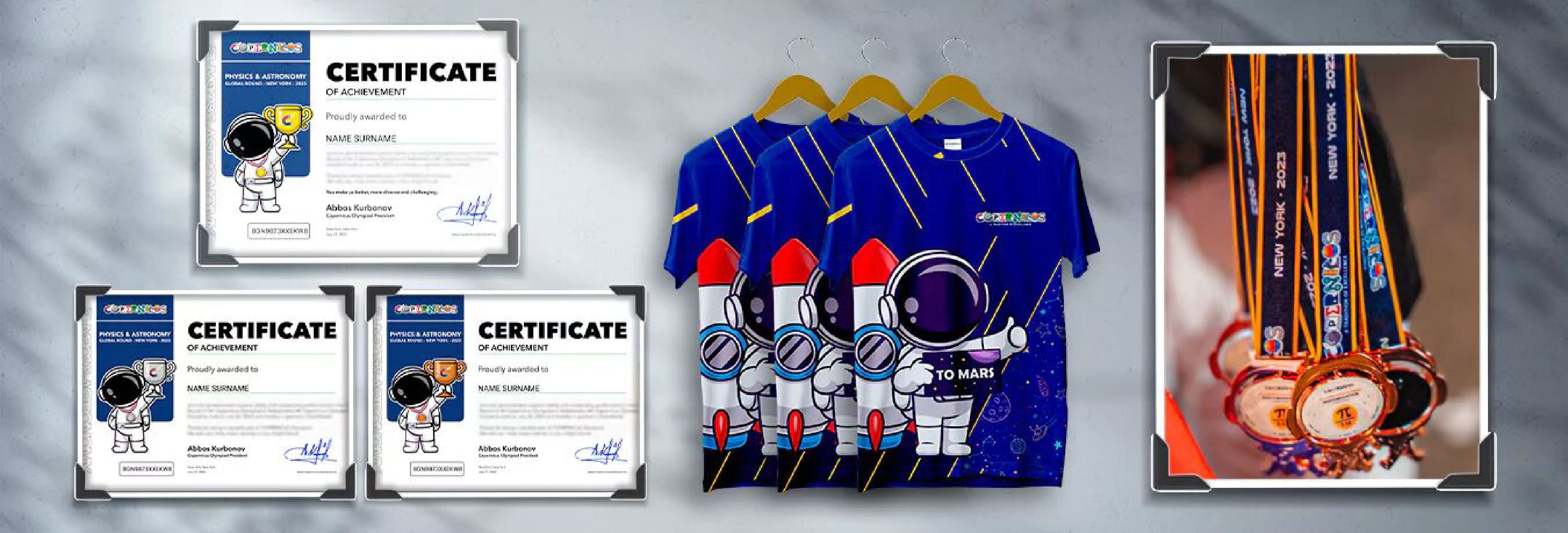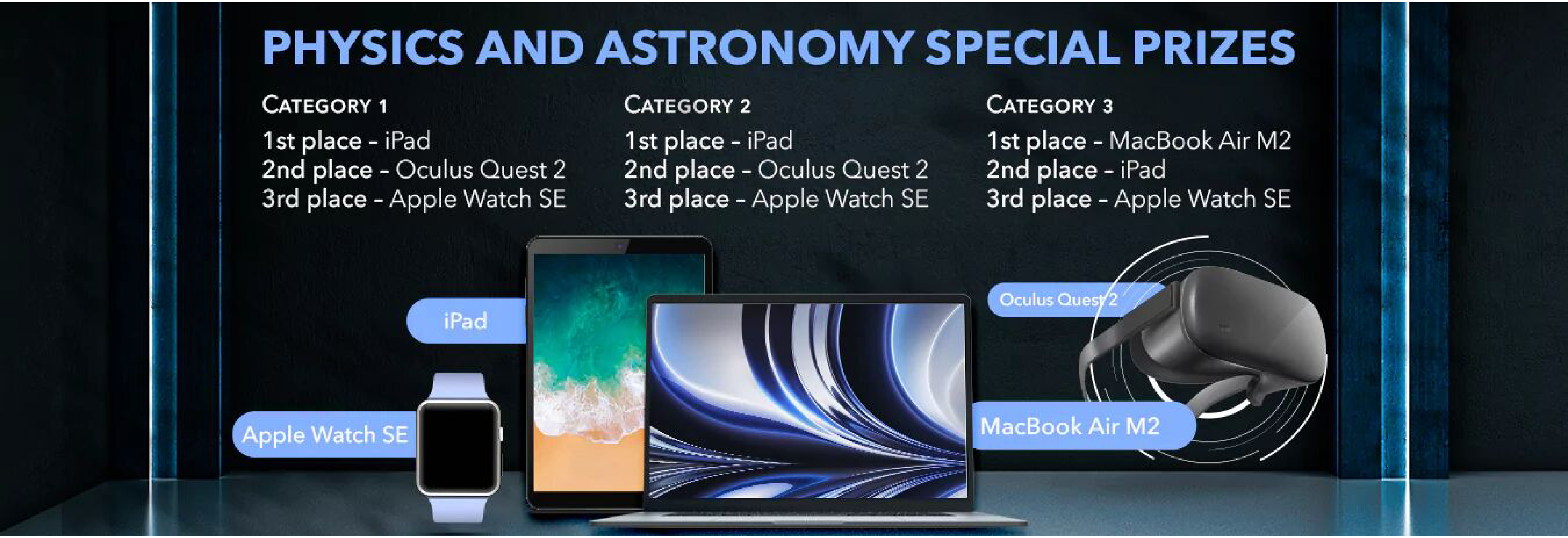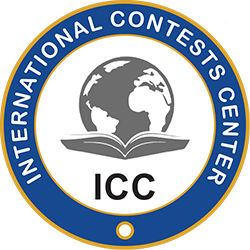
SYLLABUS
| Syllabus | Physics | Astronomy |
|---|---|---|
| Category 1 (Grade 7 and 8) | • Newton’s laws of motions • Types of forces • Speed, velocity, and acceleration • Simple machines • Forms of energy • Energy transformation • Conservation of energy • Properties of sound waves • Sound dispersion and the Doppler effect • Properties of light • Behavior of light • Lenses and their application • Electromagnetic spectrum • Electric circuits and components • Heat transfer • Properties of fluids • Fluids dynamics • Buoyancy and Archimedes principle | • The Sun • Moon, asteroids, and planets • Asteroid belt and Kuiper belt • Celestial motions • Day and night, seasons, and moon phases • Eclipses • Stars and their characteristics • Constellations and their cultural significance • Life cycle of stars • Types of galaxies • The Big Bang Theory • Meteor showers • Auroras |
| Category 2 (Grade 9 and 10) | • Kinematics (motion in one and two dimensions) • Circular motion and gravitation • Work, power, and energy • Temperature, heat, and thermal expansion • Laws of thermodynamics • Conduction, convection, and radiation • Electric circuit and Ohm’s law • Electric potential, voltage, and current • Magnetic fields and electromagnetism • Wave properties • Sound waves, their characteristics, and behavior • The Doppler effect and wave interference • Electric charges and fields • Coulomb’s law and electric potential energy. • Electric flux and Gauss’s law • Quantum mechanics and the behavior of subatomic particles. • The photoelectric effect and wave-particle duality. • Nuclear physics (atomic structure, radioactivity) • The behavior of gases and gas laws (Boyle’s law, Charles’s law, etc.). • Ideal gas law and kinetic molecular theory | • Detailed study of the Sun and its properties. • The life cycle of stars, including their birth, evolution, and death • Stellar properties, such as luminosity, temperature, and size. • Stellar classification and the Hertzsprung-Russell diagram. • Types of galaxies (spiral, elliptical, irregular). • Galactic structure and the Milky Way. • The concept of the expanding universe and its implications • The Big Bang theory and the origin of the universe. • Dark matter and dark energy. • The cosmic microwave background radiation • The study of exoplanets and their potential habitability. • The search for extraterrestrial life. • The Drake Equation and the Fermi Paradox • Supernovae and black holes. • Gamma-ray bursts and quasars. • The study of cosmic phenomena using telescopes and space missions |
| Category 3 (Grade 11 and 12) | • Conservation laws (momentum, angular momentum) • Impulse and collisions • Rotational motion and torque • Gravitation beyond basic concepts • Kinetic theory of gases • Thermodynamic processes (isothermal, adiabatic, etc.) • Entropy and the second law of thermodynamics • Electromagnetic induction • Faraday’s law of electromagnetic induction. • Lenz’s law • Alternating current (AC) circuits • Interference and diffraction of light • Polarization of light • Modern optics, including wave-particle duality. • Quantum mechanics in the context of light and photons • Special theory of relativity. • Quantum mechanics, wave functions, and probability. • Atomic and molecular physics. • Nuclear physics and particle physics | • Stellar formation and evolution, including the life cycles of various types of stars • Stellar nucleosynthesis and the creation of elements • Supernovae and neutron stars • The structure and dynamics of galaxies • Active galactic nuclei, including quasars and blazars • Galaxy clusters and the large-scale structure of the universe • The expanding universe and the Hubble law • Cosmic microwave background radiation • Dark matter, dark energy, and the fate of the universe • Inflationary theory and the Big Bang |
Last Updated: July 22, 2024 |
PAST PAPERS
Students will receive the followings:
-Certificate of Participation in Preliminary Round,
-Achievement Medals in the Preliminary Round (Gold, Silver and Bronze)
-Certificate of Participation in Global Round (Paper Certificate),
-Certificate of Achievement: Gold, Silver, Bronze, Honorable Mention (Paper Certificate)
-Achievement Medals: Gold, Silver and Bronze (Based on their performance)

Gold, Silver, and Bronze medals in the Global Round will be awarded based on the following percentages:
⁃ The top 10% will receive a Gold Medal
⁃ The top 11-30% will receive a Silver Medal
⁃ The top 31-60% will receive a Bronze Medal
⁃ The top 61-75% will receive an Honorable Mention Certificate
Moreover, the top three students of each category of Global Round will get special prizes listed below:

